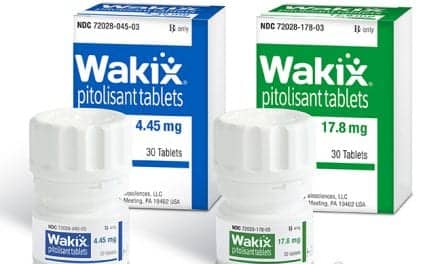For many years, insomnia drugs, especially for sleep-onset insomnia, have been seen as sleep-promoting agents, said Mihael H. Polymeropoulos, MD, president, CEO, and chairman of the board of Vanda Pharmaceuticals Inc, during the company’s second quarter earnings conference call. But the company’s clinical trial results of HETLIOZ (tasimelteon) for insomnia suggest that circadian misalignment may be the etiology behind chronic primary insomnia for many patients. “I think there is an opportunity for a circadian regulator like tasimelteon to actually start some new thinking,” Polymeropoulos said.
Vanda is preparing for the submission of a supplemental New Drug Application (sNDA) for HETLIOZ in the treatment of insomnia. Polymeropoulos said Vanda has evidence to support two insomnia-related indications: transient insomnia based on phase advance and chronic insomnia characterized by difficulties with sleep onset.
Polymeropoulos cited a trial in which chronic primary insomnia patients were randomized to receive either 20 mg or 50 mg of tasimelteon or placebo over the course of four weeks. The results demonstrated that tasimelteon was able to improve latency to persistent sleep significantly, and this effect persisted for the 4 week duration of the study.
This effect was seen acutely on the first night of treatment. Patients in the 20 mg and 50 mg groups fell asleep 22.9 minutes (p<.001) and 25.9 minutes (p<.001) faster, respectively, than those in the placebo group, as measured through polysomnography.
Polymeropoulos said, “It may be that a large number of patients who appear to have sleep onset insomnia, they actually have a change in their sleep schedule….This is perhaps why the drug has worked very well in the 4-week insomnia study.”
HETLIOZ is already US Food and Drug Administration approved for the treatment of Non-24-Hour Sleep-Wake Disorder and for sleep disturbances in Smith-Magenis Syndrome.
In other Vanda Pharmaceuticals news, clinical trials for HETLIOZ in delayed sleep phase disorder and sleep disturbances in autism spectrum disorder are currently enrolling patients.
Photo 158986646 © Shao-chun Wang | Dreamstime.com




